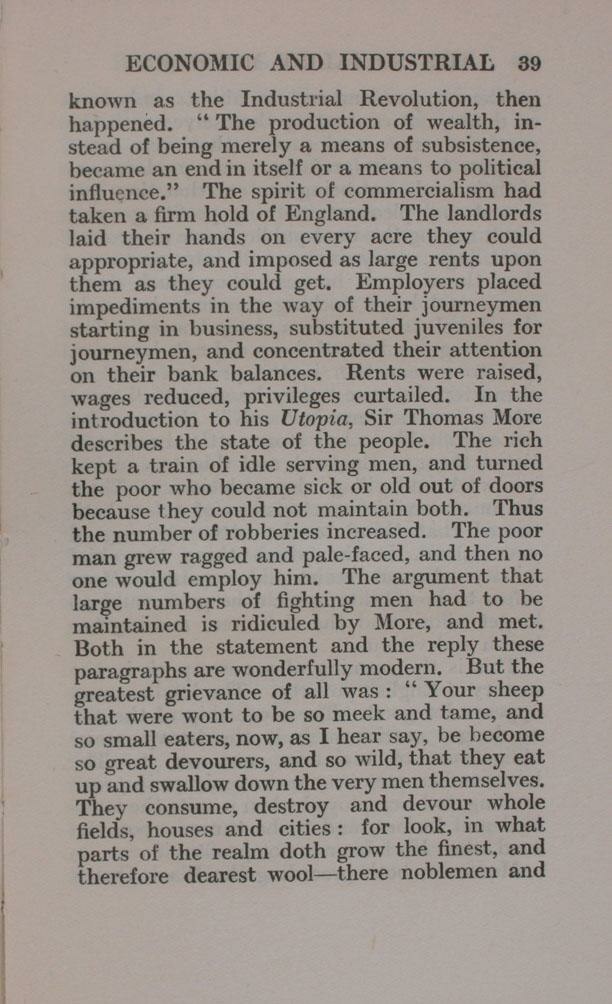known as the Industrial Revolution, then happened. "The production of wealth, instead of being merely a means of subsistence, became an end in itself or a means to political influence." The spirit of commercialism had taken a firm hold of England. The landlords laid their hands on every acre they could appropriate, and imposed as large rents upon them as they could get. Employers placed impediments in the way of their journeymen starting in business, substituted juveniles for journeymen, and concentrated their attention on their bank balances. Rents were raised, wages reduced, privileges curtailed. In the introduction to his Utopia, Sir Thomas More describes the state of the people. The rich kept a train of idle serving men, and turned the poor who became sick or old out of doors because they could not maintain both. Thus the number of robberies increased. The poor man grew ragged and pale-faced, and then no one would employ him. The argument that large numbers of fighting men had to be maintained is ridiculed by More, and met. Both in the statement and the reply these paragraphs are wonderfully modern. But the greatest grievance of all was: "Your sheep that were wont to be so meek and tame, and so small eaters, now, as I hear say, be become so great devourers, and so wild, that they eat up and swallow down the very men themselves. They consume, destroy and devour whole fields, houses and cities: for look, in what parts of the realm doth grow the finest, and therefore dearest wool—there noblemen and
Page:James Ramsay MacDonald - The Socialist Movement.pdf/43
ECONOMIC AND INDUSTRIAL
39
